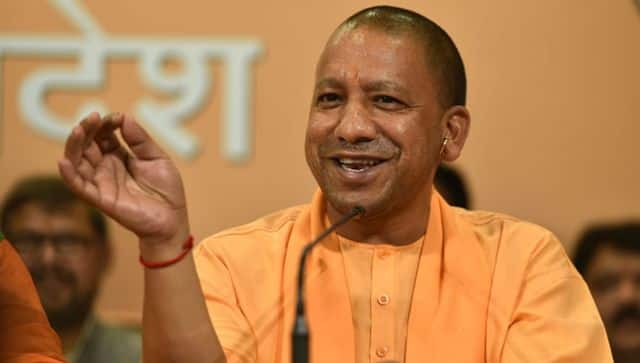Nearly a year and a half since assuming charge as the 48th Chief Justice of India (CJI), NV Ramana is all set to retire today. Ramana has quite a packed schedule on his last working day with five cases including a public interest litigation (PIL) seeking ban on ‘irrational freebies’ on his docket. CJI Ramana today shared the bench with his successor Justice Uday Umesh Lalit and Justice Hima Kohli. Justice UU Lalit will take oath as the 49th Chief Justice of India on 27 August.
Notably, in a first for the Supreme Court, the proceedings of the ceremonial bench in CJI Ramana’s court were live streamed on the National Informatics Centre (NIC) webcast portal.
Labeling him as a “citizen’s judge”, senior advocate Dushyant Dave was quoted as saying by ANI that CJI Ramana discharged his duty with a spine. Here are cases CJI Ramana heard on his last working day and a look back at his tenure: Election freebies The Supreme Court on Friday referred the matter of ‘election freebies’ to a three-judge bench, citing the complexity of the issue. “The issues raised by parties require extensive hearing. Certain preliminary hearings need to be determined, such as what is the scope of judicial intervention, whether appointment of expert body by court serve any purpose, etc.” LiveLaw quoted CJI Ramana as saying. [caption id=“attachment_11120781” align=“alignnone” width=“640”] CJI NV Ramana referred ‘election freebies’ case to a three-judge bench. PTI[/caption] The PIL filed by Delhi BJP leader Ashwani Upadhyay claims the promise of “irrational freebies” by political parties is to “lure” voters ahead of the elections. Upadhyay has sought directions to the Central government and the Election Commission to take measures to regulate parties’ election manifestos. “The worries raised by the petitioner that under the guise of welfare, fiscal responsibility is dispensed with, must also be considered,” the top court said in its order. Several political parties including AAP, DMK and Congress have argued that there should be a distinction between freebies and welfare measures for the poor and the marginalised. Plea against Yogi Adityanath in Gorakhpur case The apex court dismissed a plea challenging the Uttar Pradesh government denying permission to prosecute Chief Minister Yogi Adityanath in the 2007 Gorakhpur riots case. [caption id=“attachment_11120761” align=“alignnone” width=“640”]
 SC dismissed plea challenging denial of sanction to sanction to prosecute Yogi Adityanath in a hate speech case. PTI[/caption] The petitioner, a UP-based activist Parvez Parwaz, had alleged that Yogi Adityanath had made inflammatory remarks against the Muslim community during his address to “Hindu Yuva Vahini” workers in Gorakhpur on 27 January, 2007, leading to clashes that killed one person. Liquidation regulations under bankruptcy law The three-judge bench led by CJI Ramana announced that the Insolvency and Bankruptcy Code (IBC) will prevail over the Customs Act. As per LiveLaw, the Supreme Court said that once moratorium under IBC is declared, Customs authorities have limited jurisdiction to assess the quantum and they cannot take steps to recover the dues. Karnataka mining case The top court increased the mining limits on iron ore in Karnataka, reported MoneyControl. In Ballari district, the cap of mining at 28 million metric tonnes has been raised to 35 million metric tonnes, while in Tumakuru and Chitradurga districts the ceiling has been upped from seven million metric tonnes to 15 million metric tonnes. [caption id=“attachment_11121331” align=“alignnone” width=“640”]
SC dismissed plea challenging denial of sanction to sanction to prosecute Yogi Adityanath in a hate speech case. PTI[/caption] The petitioner, a UP-based activist Parvez Parwaz, had alleged that Yogi Adityanath had made inflammatory remarks against the Muslim community during his address to “Hindu Yuva Vahini” workers in Gorakhpur on 27 January, 2007, leading to clashes that killed one person. Liquidation regulations under bankruptcy law The three-judge bench led by CJI Ramana announced that the Insolvency and Bankruptcy Code (IBC) will prevail over the Customs Act. As per LiveLaw, the Supreme Court said that once moratorium under IBC is declared, Customs authorities have limited jurisdiction to assess the quantum and they cannot take steps to recover the dues. Karnataka mining case The top court increased the mining limits on iron ore in Karnataka, reported MoneyControl. In Ballari district, the cap of mining at 28 million metric tonnes has been raised to 35 million metric tonnes, while in Tumakuru and Chitradurga districts the ceiling has been upped from seven million metric tonnes to 15 million metric tonnes. [caption id=“attachment_11121331” align=“alignnone” width=“640”] Supreme Court has increased the mining limits on iron ore in Karnataka. MoneyControl[/caption]
Supreme Court has increased the mining limits on iron ore in Karnataka. MoneyControl[/caption]
“Conservation of environment and economic development must go hand in hand,” the Supreme Court bench said in its order.
In May, the apex court had allowed the export of iron ore from mines in these three districts in Karnataka. In its April 2022 affidavit, the Karnataka government had objected to the lifting of the export ban on iron ore. Rajasthan mining lease case The Rajasthan mining lease issue pertains to an appeal by the state government against a 2016 high court order allowing Ultratech Cement company to continue its limestone mining lease in the land that was a water body as per the state dispensation. The Rajasthan government has said in its arguments that if mining continues in the region it would disturb the environmental balance. A look back at CJI Ramana’s tenure Within a week after Justice Ramana took oath as the Chief Justice of India on 24 April, 2021, he heard a case pertaining to the arrest of journalist Siddique Kappan while he was on his way to report on the gangrape and murder of a Dalit girl in Uttar Pradesh’s Hathras. The CJI had directed the Uttar Pradesh government to shift Kappan to Delhi for better medical care, even in the face of strong objections from the government. Justice Ramana’s bench also heard a petition challenging the validity of Section 124A of the Indian Penal Code or the British-era sedition law. The apex court directed the central and state governments not to lodge cases under the sedition law till the Centre reconsiders the provision. Even as CJI Ramana’s tenure avoided major controversies that marred his predecessors, he was criticised for failing to list cases of national and constitutional importance including challenges to the abrogation of Article 370 of the Constitution, the Citizenship Amendment Act (CAA), Electoral Bonds Scheme among others, as per Indian Express. With inputs from agencies Read all the Latest News , Trending News , Cricket News , Bollywood News , India News and Entertainment News here. Follow us on Facebook, Twitter and Instagram.


)

)
)
)
)
)
)
)
)



